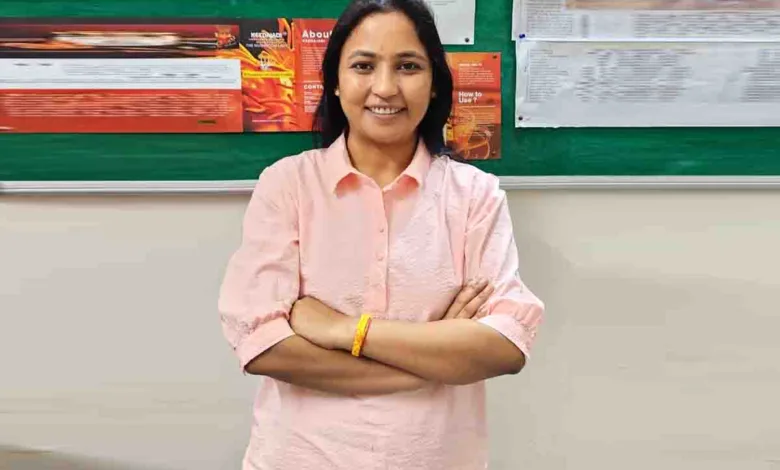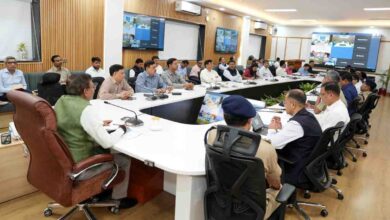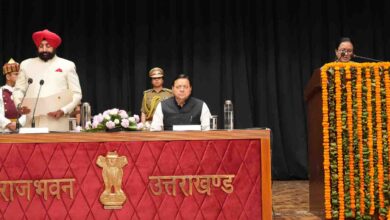Mushrooms can bring prosperity, reverse migration in State: Rawat

Also known as the Mushroom Lady of Uttarakhand, Divya Rawat is a recipient of the Nari Shakti Puraskar award presented to her by the President in 2016. She is known for her innovative approach to cultivating mushrooms and providing employment to hundreds of women in mountainous areas. In an interview with Purnima Bisht of The Pioneer, Rawat talked about her future plans to increase employment opportunities and women entrepreneurs in the State.
How did you decide to be an entrepreneur through mushroom cultivation at a young age?
While pursuing Bachelors in Social Work in Delhi, I interacted with many men belonging to the mountainous area of Uttarakhand who were doing menial jobs there at low salaries. These men had homes and fields in the village but they were still working far away due to lack of opportunities. This had a major impact on me. I also did internships with some noted NGOs and witnessed the plight of underprivileged women in remote areas who were reportedly sold for a few thousand rupees. These incidents were always deep-seated in me but came to the surface when I returned after the Kedarnath tragedy in 2013. I saw people struggling to survive and many had to go to other States to earn their livelihood. This prompted me to do something that can provide employment to people in mountainous areas. Initially, I decided to learn all about farming of the common crops. However, I noticed a big difference in the selling price of crops like potatoes, onions and mushrooms. Those were being sold at quite higher prices. This motivated me to learn more about mushroom cultivation.

How hard was it to start your own business? Did you get any support from the government?
I got my initial training in mushroom cultivation from the government department and started growing mushrooms at home. I did not get any direct financial help from the government but got its support regarding fertilisers and subsidies in electricity when I decided to cultivate mushrooms in my paternal home in Chamoli after growing them for about eight months in Dehradun. Some hurdles are common in every new work but considering the impact we left on people, it has been worth it.
Ensuring good marketing of a product to maximise its reach is one of the main concerns of every entrepreneur to earn profits. What was your experience?
We never had much trouble in marketing our products. We grow and sell 20 varieties of mushrooms and products made from them. Most of our mushrooms which are commonly consumed by locals, are sold within Uttarakhand and we never had to make extra effort to sell them in other States. We do sell our products online to make them accessible to people across the country.
How many people are employed in your mushroom business?
We have always emphasised that people must grow their own mushrooms and sell them independently. We always ask people to start small but independently to ensure they get maximum benefit of their hard work. We have trained several people in mountainous areas and small towns who grow mushrooms and sell them in the nearby market without any hassle. Those who do not want to go through the hassle contact us. At present, about 15,000 people are associated with our business directly and indirectly.
Why should people in mountainous areas of Uttarakhand be more involved in mushroom cultivation to earn money?
After I started learning more about mushroom cultivation, I realised that it is a perfect crop to be grown in villages. It can be grown in a small room using minimal investment and without any danger of animals which often destroy crops in fields leaving farmers with nothing. Today, very few people are living in villages due to various reasons but lack of employment opportunities is the primary reason. Those empty houses can be used by people to grow mushrooms. I believe that it can actually help in reverse migration in the mountainous areas to a great extent. Some women are actually growing mushrooms in empty rooms in their villages. It does not make them full-time businesswomen but they earn more than if they had rented those rooms. They usually see it as a surplus income rather than a full-fledged business but it’s a start.
What are your future plans?
I am setting up a project under the Micro, Small and Medium Enterprises (MSME) in Kotdwar. Under this project, we will make mushroom-based products like shampoos, cleansers and others. We will also be selling other products prepared from locally grown crops in the State. About 4,000 women will be associated with this project. We are working on the project and all the products will possibly be available for the public in the next few months.






